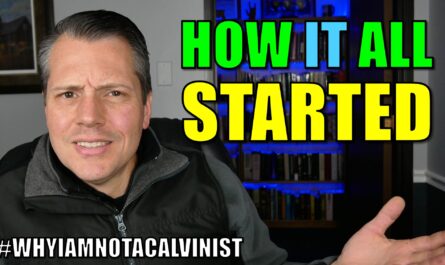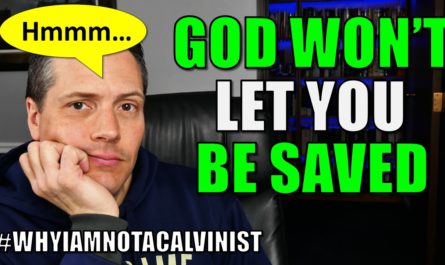“You did not choose Me, but I chose you.”
Those words of Jesus may cause you to pause for a second, especially if you reject Calvinistic doctrine. Does this not make it clear that it is Jesus who chooses, and not us?
Before we look at this a little closer, allow me to remind you of the primary rule of hermeneutics: always, always, always consider the context.
In this case, we will begin by expanding our focus on this single phrase to the whole verse in question.
You did not choose Me, but I chose you and appointed you that you should go and bear fruit, and that your fruit should remain, that whatever you ask the Father in My name He may give you. (John 15:16)
To understand this statement in context, we need to make two important observations.
First, the “you” refers to the disciples of Jesus.
Backing up to chapter thirteen, we see that Jesus was spending some quality time with His Disciples while awaiting His crucifixion. Gathered in the upper room, He washed their feet and shared the bread with Judas, who suddenly exited to prepare for the betrayal. After he left, Jesus gave the remaining disciples a lengthy monologue.
The fact that He was speaking directly to His disciples is crucial. That does not mean that nothing in His teaching can be applied to us. For example, we have the great passage in 14:1-6, where Jesus says He is preparing a place and will come back. From the rest of the Bible, we know that we get to take part in that if we come through Jesus.
However, His original message was for His close disciples. Looking on the eleven “diamonds in the rough” seated around Him, He spoke intimately to them.
No longer do I call you servants, for a servant does not know what his master is doing; but I have called you friends, for all things that I heard from My Father I have made known to you. (John 15:15)
These men, who had followed Jesus for three years, learning from Him and serving Him, were more than just His pupils and servants—they were His friends. But how did this diverse collection of rough characters get to be friends with the Son of God? They certainly did not apply for the position. They had been chosen for this task by Jesus Himself.
You did not choose Me, but I chose you and appointed you that you should go and bear fruit, and that your fruit should remain, that whatever you ask the Father in My name He may give you. (John 15:16)
Remember, His primary audience was His Disciples. In fact, a few verses later, He says this:
And you also will bear witness, because you have been with Me from the beginning. (John 15:27)
His Disciples had been with Him since the beginning of His ministry. They were the “friends” of verses fifteen and sixteen. He was reminding them how they got to be Disciples. He had selected them. He had actually chosen twelve, but one, Judas, walked away, as Jesus had previously announced.
Jesus answered them, “Did I not choose you, the twelve, and one of you is a devil?” (John 6:70)
The second observation we should make about this statement is that it has nothing to do with salvation, but with service.
Jesus was not saying that He chose His Disciples (or anyone else, for that matter) for salvation. He had chosen them to “go and bear fruit.” Their apprenticeship was coming to an end. For three years they had learned from Jesus, and now He was leaving the ministry in their hands.
So, in summary, this passage does not refer to salvation, but to the fact that Jesus chose His Disciples for a unique task.



